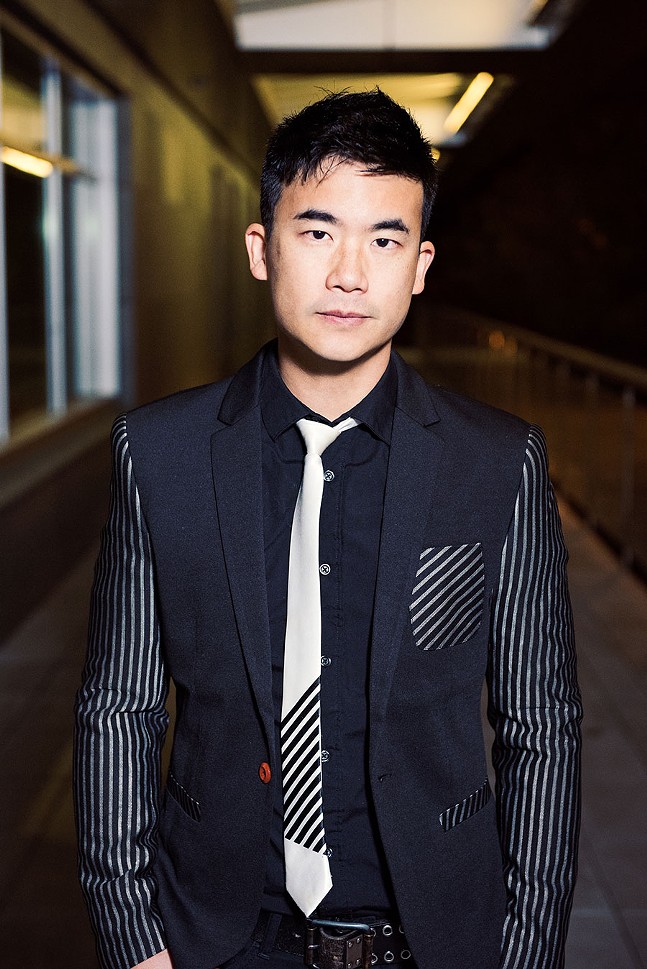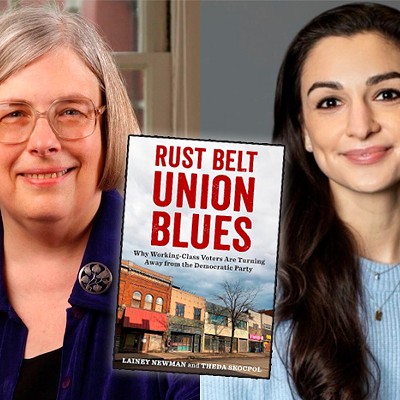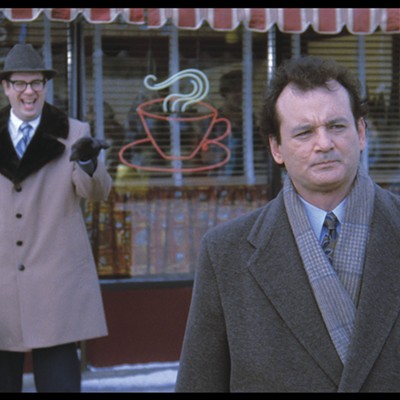Life on the road for a touring musician is hard enough without dealing with a high-profile Supreme Court case, but that's the reality Simon Tam faced on and off for almost a decade.
The case centered on his band name, The Slants, which was chosen by Tam in 2006 as a reference to and acknowledgment of the word as a derogatory epithet for Asian Americans (Tam and his bandmates are Asian American). For Tam, the name was a form of re-appropriation, a way of "draining [the word's] venom," as he wrote in the New York Times in 2017. The United States Patent and Trademark Office did not agree.
Tam's trademark filing for The Slants was denied on the stance that the term was derogatory and racist, with little more evidence than an entry on Urban Dictionary. This kicked off an exhausting, expensive, decade-long process over the trademark that finally ended in 2017 with the Supreme Court ruling unanimously in Tam's favor.
“Dance rock band front man Simon Tam sought to trademark The Slants. His aim was to reappropriate a term long used to disparage a minority group and to render the term a badge of pride. All of us agreed," Supreme Court Justice Ruth Bader Ginsberg said of the decision.
But even as the case grabbed headlines and led to Tam rubbing elbows with President Obama and Killer Mike, The Slants didn't stop writing recording, and touring. The court case might have hogged the spotlight, but the quality of the music — dancey, tongue-in-cheek, synth-pop — didn't waver. While the case may have given them attention in a political sense, Tam and his bandmates are still very much as focused on the music as any other band. Though Tam still works as an advocate for first amendment rights, with the case behind them, The Slants can get back to doing what they set out to do in the first place: make music.
Tam chronicles this strange, remarkable story in his new memoir Slanted: How an Asian American Troublemaker Took on the Supreme Court (Troublemaker Press). He'll be joined by two of his bandmates at White Whale Bookstore on Sun., Sept. 15, where he'll speak on the memoir and play songs from The Slants' new record. Pittsburgh City Paper spoke to Tam ahead of his appearance.
The interview has been edited and condensed.
I read an interview where you referred to the “indignity” of this court case. Can you elaborate on the role of dignity/indignity in this process?
I refer to it as an indignity for a couple of reasons. First of all, when it comes to being able to choose your own identity, I think that’s a really important thing and perhaps one that’s sometimes undervalued. It’s kind of absurd to have someone say, “You’re offensive to yourself” or “The work you’re doing is racist or offensive to this community,” especially if you’re an active member of that community. If you think about it, if you’re trying to prove how you’re not offensive to yourself, that’s a very strange notion, the kinds of proof that you need.
Not that people weren’t supportive of our name and the work that we did. But it was kind of weird going to these nonprofit organizations I had been working with for a while, and asking them to write a legal declaration and a signed affidavit and get it notarized, saying [that they're] OK with our name. It's like, even though it’s plastered all over your programs and website? I felt like I was burdening already over-burdened organizations and people with my cause.
All the while, I just thought, “I shouldn’t have to do this. Why is my burden of proof so obscenely high, when all the government has to do is hop on the internet and go to Urban Dictionary and find an entry?”
Most of this story centers on you rather than your bandmates. How did that dynamic emerge?
First of all, the case literally has my name on it. I think it’s easier for people to wrap their heads around a person, rather than a band that has a number of members that have changed over the years. Second of all, I was probably the most passionate of all the band members about this. When I first filed for the trademark, I was the one doing all the research and the lead person on all of it. Many band members were happy to sit back and support in their own ways, but they certainly weren’t putting themselves out in terms of the huge financial burdens from a case like this. They just didn’t really have the desire to spend $11k on printing. [Laughs] Whereas for me, the band has always been my baby. I’ve served as the manager since the beginning, so I kind of felt like it was my responsibility. Whether I liked it or not, this [was] something that I [had to] do.
What advice would you give young Simon at the outset of this case?
If I were to go back, I think there would be a couple of things I wished I'd known in the beginning. One, it’s going to be a lot harder than I ever thought. [Also] to really prioritize self-care and endurance.
Another is just to be really mindful how the case could be interpreted and learning to deal with that in healthy ways. For example, when we won, it was very difficult to find a headline that talked about our band. Every headline was about the Washington football team [euphemism name for D.C.'s football team] and how they won, but they didn’t go to court! That narrative was essentially hijacked and fueled a lot of anger and a lot of confusion from a number of Native American activists and folks sympathetic to their cause. I am as well. I’ve never been a supporter of [team owner] Dan Snyder, or the Washington football team, or Native mascots. I’ve always been supportive of the movement. And then, to all of a sudden have that collective frustration and anger turned on me instead, it was very difficult.
I probably would have been more proactive that the messaging was clear, that this was done with intention and thoughtfulness and with a partnership with a lot of Native American tribal leaders and confederated tribes and we had considered all these things. But it’s very difficult to communicate that nuance, especially on social media. Those were the most dark moments of this journey, so I wish I would have prepared for that more.
How much of your book is not about the court case?
I would say maybe 20 to 30 percent of it. The journey to the Supreme Court was certainly the main story arc and the driving force behind me wanting to write the book. [But] I also wanted to provide some background info and help folks realize that, you know, you read about all these cases, but oftentimes they don’t realize that there are actually people involved. We throw around their names, we make assumptions about who they are as a character, but we don’t really take the time to dig and think, “Why would someone want to do this? Why would they want to spend to over a dozen years in the legal system to get their form of justice?” In order to [convey] that, I wanted to share personal stories.
It’s hard for people to talk about your band without talking about the case. How do you navigate that? I imagine it’s frustrating.
For the longest time, I will say it was frustrating. It’s tough when you’re an artist and you spend all this time working and writing and putting yourself in your art only to have people dismiss it as kind of just a thing you do on the side, like, "You’re really just about this legal case." That has always been a bit weird.
But over the years, my views and feelings have changed on it a bit. As we've continued with our case, we’ve probably become even more active in our community, with our philanthropy work and community activism. At that point, I was just like, "Well, we’re standing for this because we believe in it." If that’s the door that people walk in and that leads them to our music or our activism work, then I think it’s a good thing.



















